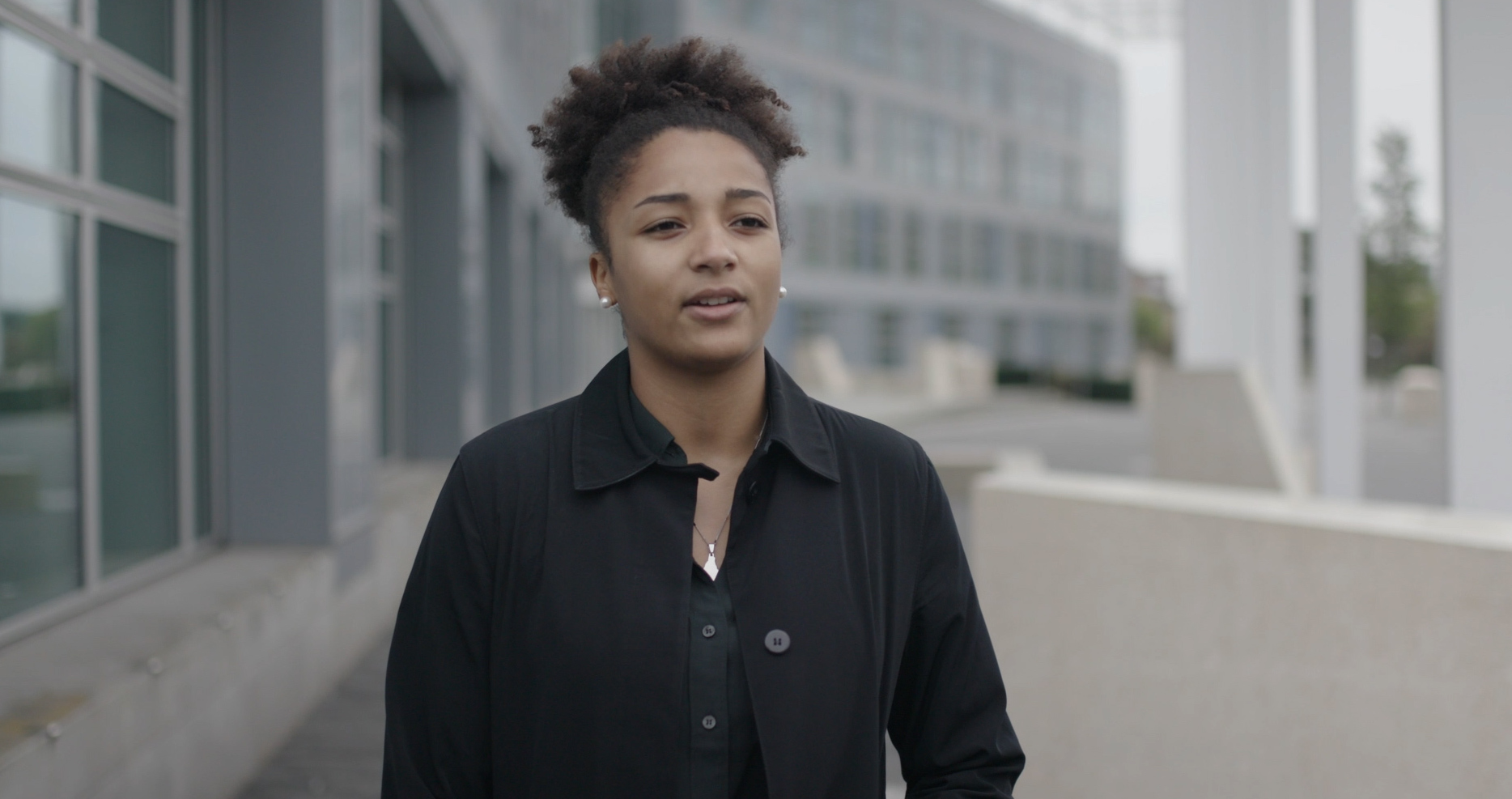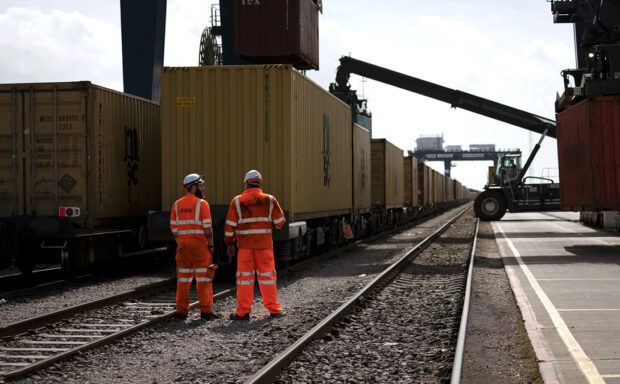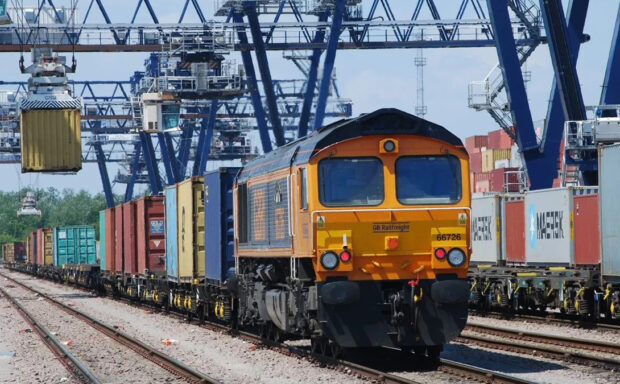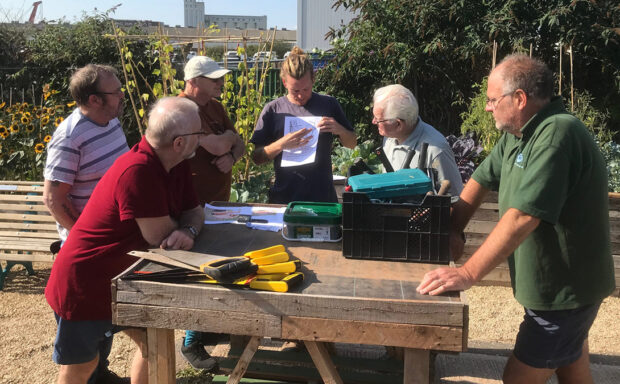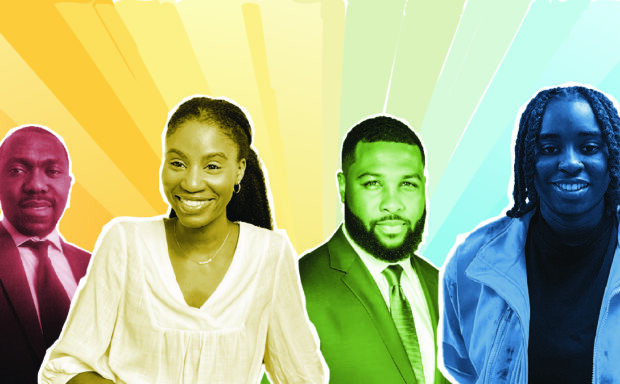At school, aspiring athlete Olivia Woodward threw herself into as many sports as possible. After university, she joined a much bigger team – the railway.
We chat to Olivia about her love of maths, making a change and the best advice she’s ever received.
Watch Olivia in this video:
“I always wanted to be the best.”
“If you’re interested in something and you’re passionate about it, then you will go far with it.”
We’ve ranked among the UK’s best places to work – find out more
Watch Olivia and colleagues in our film for Black History Month 2020, Change the Game
What’s your job?
I’m a finance graduate so I joined the scheme [in 2019] and I’m currently in the cost and volumes team. So we assure and report on the renewals volumes that Network Rail delivers so this involves periodic reporting, reporting to the [Office of Rail and Road] and giving commentary on what the routes and regions have underdelivered, the reasons way… and we try to articulate that to the regulator.
Do you feel like you’re doing something important?
A hundred per cent. It’s what motivates me to come to work. If I feel I’m adding value to something and that my work is going forward and helping decisions higher up in the business, or lower in the business, it’s something that I know what I’m doing is helping something and it’s impactful.
Has anything surprised you about the railway?
It’s so complex. I didn’t realise how big it was. When I was at university I would get the train from A to B and then coming into the railway, I now realise how many different parts go into getting the train from one station to the next. It was really interesting to see that and all the assets involved and all the people involved. It was just mind-blowing to start with.
Do you feel proud working on the railway?
A hundred per cent. When people talk about the railway, whether good or bad, I think, ‘do you know what? I’ve had a part in that.’ Whether it’s small, I know what it’s about and I know how important the network is in getting people to their jobs, to their family.
Is there always something new happening in your role?
The railway being so big, you can never know it all. There’s always something you can go and explore and learn a little bit more about.
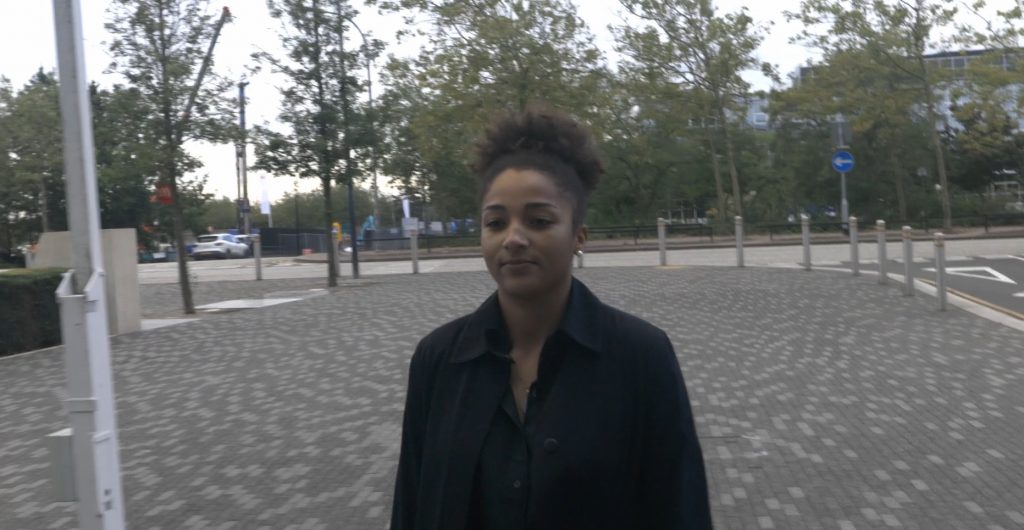
It’s always changing, from day to day. Whether you work on the track, whether you work in the office, one change in the railways can shift your whole job role, from day to day. One day you can be looking at something, something happens, you need to get all this information for the chief executive … With this company especially, here you’re a graduate or an exec, there’s no barriers between. You can contact them, you can get in touch, you can help them and that’s really positive.
Is it important to you that you’re in a job where you can make a difference?
I’m passionate about making a change, whether it’s on a person or whether it’s something that I deliver. It’s something really important to me that I know I’ve actually influenced something and I’ve made a difference somewhere, throughout everything that I do, really. I think it’s what motivates me and it’s definitely something that drives me every day to work harder.
What did you want to be as a child?
[Like a lot of children], an athlete or a footballer and this was definitely the dream for a while. But I really loved maths at school so I thought ‘there’s potential of being an accounting or working in finance somewhere’. I didn’t know to begin with but I definitely knew a maths-y route was for me.
What were you like as a child?
So when I was growing up, I was really sporty. I got involved in as many sports as possible but I was also really competitive in my studies. So I always wanted to be the best at everything, whether it was maths, English, whether I liked it or not. I always wanted to be the best and I always had to finish at the top of the class.
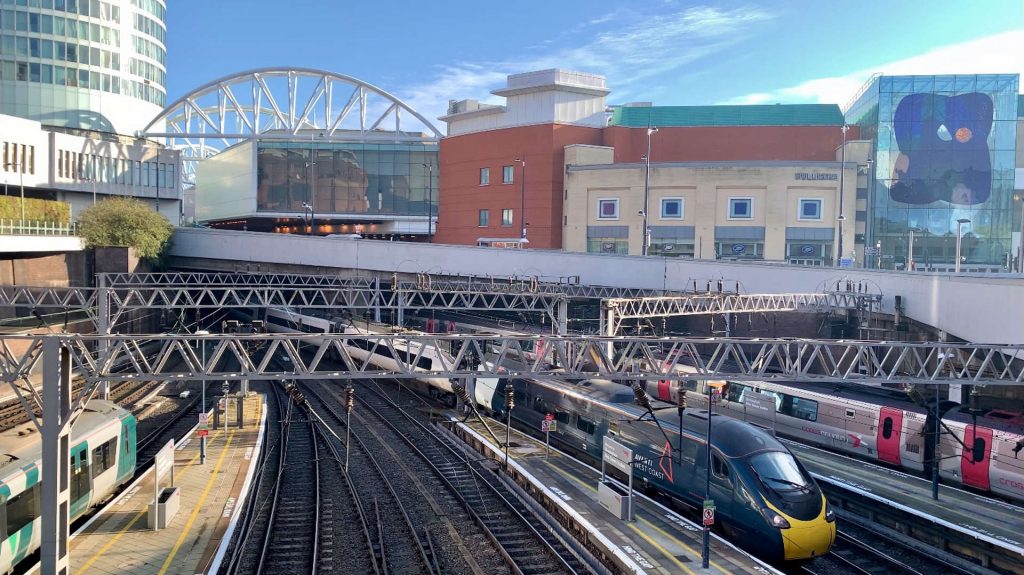
Did you have any role models growing up?
My role model will always be my brother. He was really good at sports, really good at school and it was definitely something that when I was growing up, he was eight years older than me so I always knew, ‘he works really hard, if I work really hard, I can be just like him’. To this day, I think I still want to be like him a little bit.
I had a teacher in sixth form who was my economics teacher and he really opened up a completely different world. He was like, ‘do you know what? It’s going to be difficult, an economics degree, but if you do this …’ and he really talked me through economics.
It was something new to me but I knew I enjoyed it. Enjoyment is a big part of everything but he showed if you just stick to it and work hard at it, then you will be able to and I managed to come out with top grades and that was really changing for me at sixth form.
What do you wish you had known at school?
When I was at school, I wish someone had told me that it will work out in the end. You’ll figure out exactly what you need to do at the right time. You’ll get there, no matter what it is.
What’s the best advice you’ve ever received?
When I played football, I was told, “Don’t practice until it’s perfect, practice until you can’t get it wrong”. If you’re reliable, and you’re trustworthy and you can always deliver to a high level, that’s something that’s really important.
Why is it important to improve diversity on the railway?
This industry is typically known as being dominated by white males. And there’s not anything necessarily wrong with that but we have to move with the times and in order to get change, we need more equality, from different views, from different people. It can change the way the railway is run …
It’s important to have diverse communities in the workplace because you need groups where people feel they’re at home, where they feel comfortable, that they can speak up, whether it’s talk about how they feel or new ideas they have in a space where they feel comfortable.
I also think it’s important because those people will be role models for kids and you need to drive it from schools and from universities that there are people who look like me who work in those industries so I can do that, too. It’s those kinds of things that need to become more common and by having more diverse communities, that’s definitely how we can do that.
What would you tell a young person?
Anything is possible, whether you think you might not fit in there, whether you don’t see anyone that looks like you that works there, there’s no reasons why you can’t break that mould. You can be that role model for people in the future … You can bring something completely new to that, which can change the game for that industry, whether it’s the railway or not. So you just have to take the opportunities … If you’re interested in something and you’re passionate about it, then you will go far with it.
What do you hope the railway will look like in terms of the makeup of its workers by the end of your career?
I can hope that we don’t have to have the conversations that are uncomfortable or we don’t have to count how many of certain ethnic groups or women are in the railway. I hope that’s not the case. It might be a push, it might be a long, long way away but … we can definitely make positive steps towards that, that it’s the norm …
Whether it becomes the norm that anyone who wants the opportunity can get it if they’re good enough and I think that’s what everyone should aim for. Hopefully the generations coming through can push away any kind of systemic barriers and anything like that, which stop people wanting to go into opportunities where they feel they might not fit in.
So I really hope that it’s the case – that everyone feels that they can go into anything they want to be in.
Do you feel empowered to use your voice at Network Rail?
In the team that I’m in, I feel very empowered. The people around me are very willing to talk about issues and things that in the normal day, people might feel uncomfortable about so I definitely feel like I can say whatever I want in terms of whether I have an idea, if I feel completely comfortable. I know that’s not always that case, especially in rooms where you’re the one Black person, the one woman. It’s so important to take that step because that step could change everything. They could listen and I think, you don’t know until you try.
Read more:
Olivia stars in Change the Game – a film for Black History Month
Change the Game – Q and A with graduate Adedayo Akeredolu
Change the game – Q and A with apprentice Adelaja Aladejobi
Change the Game – Q and A with ecologist Nathaniel Legall
